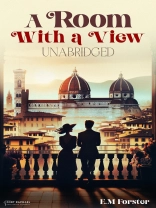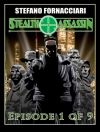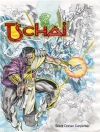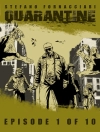One of E.M. Forster’s most beloved and critically-acclaimed works, ‘A Room With a View’ follows the journeys – both abroad and romantically – of young Lucy Honeychurch, a British girl during the Edwardian era with a distinctly independent nature.
On a trip to Italy, with her chaperone in tow, Lucy encounters a Mr. Emerson and his son George. Both men are free-thinkers, unbound by the strictures of the day, and as they continue to run into each other on the trip, Lucy starts to become secretly enamored of George. After witnessing a murder in Florence (from which chaotic scene George rescues her), Lucy accidentally stumbles upon him again in a field where – overcome by both her beauty and the romantic setting – George kisses Lucy…and the couple parts.
Once again home, Lucy becomes engaged to the snobbish and rather pretentious Cecil…and then learns that George and his father have moved to the local village. This sets the scene for the question: Will Lucy will bow to convention and marry the society-approved Cecil….or break the engagement and run away with George?
A classic of early 20th century literature, ‘A Room With a View’ has been adapted numerous times for the stage and screen, most notably for the 1985 Oscar-winning Merchant Ivory film starring Helena Bonham Carter as Lucy, Maggie Smith as Charlotte and Julian Sands as George. It is presented here in its original and unabridged format.
เกี่ยวกับผู้แต่ง
Edward Morgan Forster (1879-1970) was an English novelist, short story writer and essayist best known for his books A Room with a View (1908), Howards End (1910) and A Passage to India (1924). Born in London, young Edward lost his father to tuberculosis before he turned two years old. His mother Lily and Edward subsequently moved to a country house in Hertfordshire called Rooks Nest, which served as a model for the eponymous house in the book Howards End. Edward inherited a considerable sum of money from his paternal great-aunt that allowed him to embark on a career as a writer. He attended Tonbridge School in Kent but did not enjoy his time there. He then went to King’s College in Cambridge where he joined a secret society known as the Apostles, several members of which later helped form the Bloomsbury Group, a literary/philosophical society that boasted such early members as Virginia Woolf, John Maynard Keynes and Vanessa Bell. Upon graduation, Forster went abroad and wrote of his travels extensively. Upon his return, he set up residence in Weybridge, Surrey where he would write all six of his novels. All of his books were written between 1908 and 1924 and his last, A Passage to India, won the James Tait Black Memorial Prize for fiction. Forster was a homosexual and while he never married, he did have several affairs with male lovers during his lifetime, including a forty-year romance with married policeman Bob Buckingham, at whose home he collapsed and died at age 91 of a stroke. Forster explored his struggle with his own sexuality in his book Maurice. Forster was extremely critical of American foreign policy during his lifetime and rebuffed efforts to film adaptations of his novels due to the fact that the productions would likely use American financing. After his death, however, several of his books were made into films and three of them – A Room with a View, Howards End and A Passage to India are among the most highly regarded films of the late 20th century.












